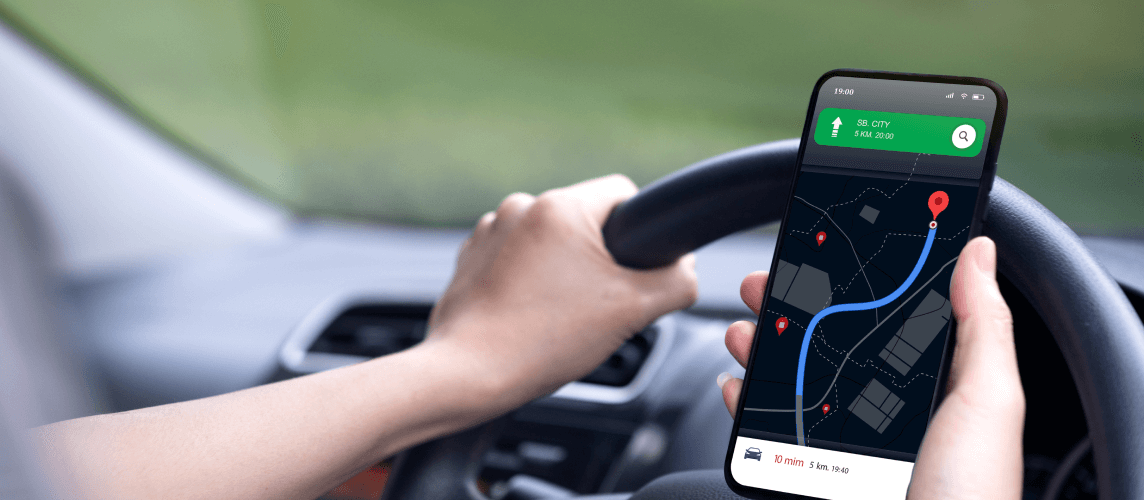On the road: How do mobile apps make couriers’ day-to-day tasks easier?
In today's rapidly changing world, the role of the courier is a critical piece of a complex logistics puzzle.
Couriers play an important role in keeping the flow of goods and information moving in our global community. However, this role comes with many challenges that couriers face every day.
In this article, we will take a closer look at these issues and the problems that employees in this dynamic sector face.
Our focus will be on innovative solutions that can bring a new level of quality to the courier experience. In today's era of modern technologies, mobile applications and other tools are becoming a key factor in facilitating their day-to-day responsibilities.
Traditional ways couriers work
When we think about the traditional ways of organizing courier work, we often picture employees carrying paper transport documents. These documents were once essential for tracking routes, deliveries, and shipments but had significant limitations. Couriers had to rely on paper documents, which could be lost or damaged, and updating maps and notes was a time-consuming process that led to delays and errors.
While indispensable in their time, these traditional methods presented challenges that today's technologies can overcome. The search for new, more effective ways to organize couriers' work has been driven by limited data sharing, difficulties in accessing up-to-date information, and the risk of errors. The introduction of new technologies, such as mobile applications, is opening up new horizons for couriers.
Mobile applications for couriers
Mobile applications play an increasingly vital role in almost every industry as technology advances. Couriers, in particular, can benefit greatly from these small smartphone-based applications. But what exactly do these applications do, and how do they impact the day-to-day operations of the courier industry? Core features:
- GPS Navigation - Integrated navigation systems help couriers find the most efficient route, which speeds up deliveries and reduces fuel costs.
- Scanning QR codes and barcodes - There's no need for manual data entry. Couriers can now scan and update package status with a single click.
- Real-time Communication – These apps provide multiple channels of communication with both headquarters and customers. This includes simple text messaging and more advanced features like chat or voice calling.
- Order Management – With these apps, couriers can easily view and manage their orders. This allows them to better organize their work and use their time more efficiently.
DPD - not only for tracking but also for managing shipments
DPD is a well-known courier company that provides a mobile app with advanced package tracking and order management features. The app offers a comprehensive set of tools to couriers, including automatic customer notifications, route management, and electronic delivery confirmation.
DPD's platform is flexible. It contains a database of links, where an employee will find all the paths to the systems functioning in the company, and has the possibility to set on the homepage the ones he uses most often.
DHL – Innovation and Security
DHL is committed to innovation and security, and continuously strives to make the courier's job easier and provide high-quality services. Their app not only has basic tracking and navigation features but also has e-signature and mobile payment capabilities, further improving the user experience. Additionally, DHL has implemented advanced security measures to protect customer data. The app includes various features, such as :
- Additional interface settings (contrast, language, availability)
- Shipping history
- Adding a phone number and email address to contact
- Shipment management
Case Study:
MójDHL - tracking courier shipments
Carrier Portal for Thyssenkrupp
Thyssenkrupp Carrier Portal is an innovative logistics management solution that introduces a new approach to fleet management. It offers advanced features for monitoring fuel consumption, routes, and work time, as well as enabling data analysis for process optimization and efficiency improvement.
These applications bring unique benefits to the courier industry, such as advanced tracking, management features, payment solutions, and security measures. Whether you are a courier, logistics manager, or customer, these apps make your life easier. The functionalities include:
- CRM of customers,
- Information indicators about customers,
- Notification panel
- Panel for strategy planning.
Mobile apps have transformed the day-to-day operations of couriers and courier companies, improving both speed and service quality. In the following sections, we will discuss the advantages and challenges of using these advanced tools.
Advantages of using mobile applications
Mobile applications are more than just modern gadgets; they are functional tools that can help improve the efficiency and quality of work in the courier industry.
These tools offer specific benefits that make the lives of couriers easier and improve customer service standards. Here are some key advantages of using mobile applications:
Increasing efficiency and productivity
Mobile applications help couriers automate various aspects of their work, from order management to navigation, enabling them to complete more deliveries in less time. This boosts the courier's productivity and translates into higher profits for the company. With logistics and paperwork taken care of, couriers can focus on delivering packages more efficiently, instead of worrying about logistics and paperwork.
Simplified navigation and routing
Mobile applications integrated with GPS systems eliminate the need for paper maps or constant contact with headquarters for guidance. The courier can easily determine the most efficient route and make real-time adjustments if necessary.
Fast and easy communication with the head office and customers
Mobile applications offer multiple communication methods, from chatting to calling, making information sharing much easier. For instance, couriers can quickly notify customers of delays or confirm package delivery in real time. In this digital age, communication has never been easier.
Together we will analyze your needs
and advise you on how to increase the efficiency of your business
Type text here
Challenges and Limitations
As new applications are introduced, it's important to consider the potential challenges arising from their implementation and use. Less obvious factors, such as privacy and data security concerns, must also be taken into account. Although these innovative solutions offer expanded possibilities for the operation and effectiveness of applications, they present some limitations and challenges.
- complexity of implementation – developing advanced applications can be complex and often involves cooperation between specialists from different fields. Integrating with existing systems, managing data, and maintaining consistency can present challenges during the implementation process.
- diverse devices and platforms – today's applications must run on a variety of devices and platforms
The advancement of technologies like artificial intelligence, the Internet of Things (IoT), and 5G offers expanded possibilities for the operation and effectiveness of applications. Increasingly personalized user experiences, optimized performance, and full integration into our daily lives are just some of the predicted aspects of the future of mobile apps. How can advanced technologies revolutionize the logistics of delivery?
- Personalized Routing - With the help of artificial intelligence and machine learning, apps can analyze data history to determine the current preferences of customers. Based on this analysis, they can suggest the optimal delivery routes, taking into account individual needs such as delivery times convenient for the recipient or preferred pick-up locations.
- Proactive Issue Management - AI enables early detection of common problems such as delivery delays, vehicle breakdowns, or changing weather conditions. Applications can automatically respond to these situations by reorganizing delivery routes in real-time to minimize disruption.
- Optimized Distribution Planning - Machine learning-based algorithms enable continuous improvement of distribution planning processes. They take into account many factors, such as shipment volume, vehicle availability, and routes to optimize deliveries, resulting in time and cost savings.
- Automated Tracking and Monitoring - The Internet of Things (IoT) enables devices and sensors to provide real-time data on the location, temperature, humidity, and other parameters of shipments. This enables accurate tracking and monitoring of delivery conditions, which is especially important when delivering food or pharmaceutical products.
- Improved Fleet Efficiency - AI can also analyze data on fuel consumption, vehicle technical condition, and driver behavior to optimize the delivery fleet. This helps to reduce CO2 emissions, lower operating costs and increase overall delivery efficiency.
With personalization, optimization, and automation, mobile apps are revolutionizing the way of managing routes and deliveries, benefiting both couriers and customers. These technologies are shaping the future of logistics, making it more efficient, flexible, and sustainable.

The future of mobile apps
In the near future, we expect to witness innovations in mobile delivery applications.
Planned changes include the use of artificial intelligence and machine learning to enable even more advanced route and delivery management. The applications will also become more personalized, enabling them to be tailored to the individual preferences of couriers.
Mobile applications are expected to become a central part of fleet management in the courier industry. This will enable live monitoring, adapt routes to road traffic, and improve communication between couriers and logistics centers. Additionally, data analysis tools are being developed to enable more accurate forecasting and planning of deliveries.
Conclusions
Mobile applications have become an essential component of daily operations for courier companies, significantly enhancing delivery and fleet management. In the future, there is enormous potential for the advancement of mobile technologies.
Artificial intelligence, machine learning, and data analytics are becoming crucial factors in enabling more efficient deliveries, better route management, and a more personalized experience for both couriers and customers.
The value of mobile applications for courier companies is not limited to increasing operational efficiency but also enhancing customer relations and competitiveness. We have come a long way from paper bills of landing to the intelligent apps that are at the heart of the modern courier industry.


















